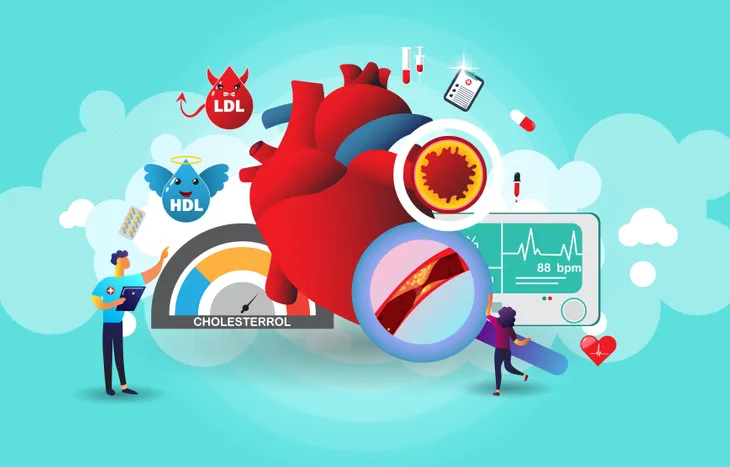They say life truly begins when you reach 40. This might be because you’re typically a little further along in your career, raising a family of your own, and really starting to find your stride in life. Some will reach this milestone without the slightest scratch in their health record, while others start to notice different aches and pains that weren’t present in their younger years. Every age range is associated with certain health conditions, however, most people are perfectly healthy when they reach their 40s.
Obesity
The reality is once you reach your 40s, your metabolism will naturally begin to slow down. The Wisconsin Health Atlas claims that adult obesity rates are the highest among adults aged 45 to 74. This means that all the sugary treats and fast food you eat will slowly make its way to your hips and stomach region and is most likely there to stay.
Trying to lose weight in your 40s is more difficult compared to your 20s, when your metabolism was faster. Another contributing factor is that typically, when you reach 40, life becomes very busy. You’re juggling a busy career, a growing family, and numerous other personal and professional obligations. If you match these time constraints with a naturally slowing metabolism, you’re more likely to be less strict with your diet, not have much time to exercise, and you’ll watch the weight start to pile on.
How to Manage Your Weight In Your 40s
Losing weight or managing your weight in your 40s might be a bit of a challenge, but it’s not impossible. The trick is to find balance in your busy lifestyle to make exercise and healthy eating a priority.
If you’re looking to enjoy good food and wine, you’re going to have to start participating in more exercise to keep the weight off. It’s all about enjoying the guilty pleasures in moderation and finding a healthy balance.
Perimenopause
Once women start to reach their mid-40s, they have a great chance of experiencing perimenopausal symptoms, which can include decreased libido, hot flashes, changes in mood, and irregular menstrual cycles due to the hormonal changes occurring in their bodies.
Not sure if you’ve entered perimenopause? Book an appointment with your doctor. Having regular blood tests completed will help your doctor track the changes in your hormones to diagnose perimenopause. From there, they can provide you with a treatment plan to decrease your symptoms.
How to Manage Perimenopausal Symptoms
If you’re dealing with perimenopausal symptoms, you should know you’re not alone and there are ways to cope. The Mayo Clinic reports that certain lifestyle remedies, such as stress reduction activities, engaging in more physical activity, and altering your diet, can make a big impact.
In some cases, lifestyle adjustments aren’t enough. If these don’t work, many women turn to hormonal therapy to treat perimenopause. But ultimately, your doctor will guide you through the best treatment for you.
Arthritis
Almost everyone can think of someone who is experiencing aches and pains due to arthritis. The type of arthritis you are most susceptible to starting in your 40s is called osteoarthritis.
Osteoarthritis is considered an age-related type of arthritis and it attacks the cartilage that covers the weight-bearing joints such as your knees, hips, and feet. This condition is typically caused by factors associated with your age such as weakening muscles, decreased amount of exercise, and gaining weight.
How to Manage Osteoarthritis
Although osteoarthritis can really put a damper on your everyday life, recent research proves the best way to manage osteoarthritis is through strength training and keeping your body weight within normal ranges.
The best types of physical activity are low-impact exercises such as weight training, cycling, the elliptical machine, as well as anything else that doesn’t place too much impact on your joints.
High Cholesterol
When you’re young and in your 20s, most people don’t consider the types of food they’re putting into their bodies. This changes drastically when you reach the age of 40 because your risk of developing cardiovascular diseases greatly increases if you don’t start to change your diet. One thing you’ll want to be mindful of is your cholesterol levels.
Keep in mind, not all cholesterol is bad. Cholesterol is very important as it produces cell membranes and hormones (to name a couple). However, if you continue to consume foods that are high in cholesterol, you are more likely to have a diagnosis of high cholesterol in the near future, leaving you at risk of developing cardiovascular diseases.
Complications of High Cholesterol and How to Manage It
You see, when you consume too much cholesterol, you start to develop fatty deposits within your blood vessels, making it increasingly more difficult for blood to flow through or potentially leading to a blood clot, which can be fatal.
The American Heart Association states that you can prevent and manage high cholesterol by eating a heart-healthy diet, participating in more exercise, losing body weight, and quitting smoking.
The Takeaway
Regardless of the phase of life you find yourself in, every age bracket is going to be associated with different health conditions. The advice I give to people is to educate yourself on what you might be potentially at risk of and then discuss these health concerns with your doctor. This way, you can get the appropriate tests completed and develop a plan to prevent or manage anything of concern.
The easiest way to start taking better care of your health is to start exercising more frequently and eating a healthier diet. This will do wonders in preventing and managing any chronic health condition you come across.












